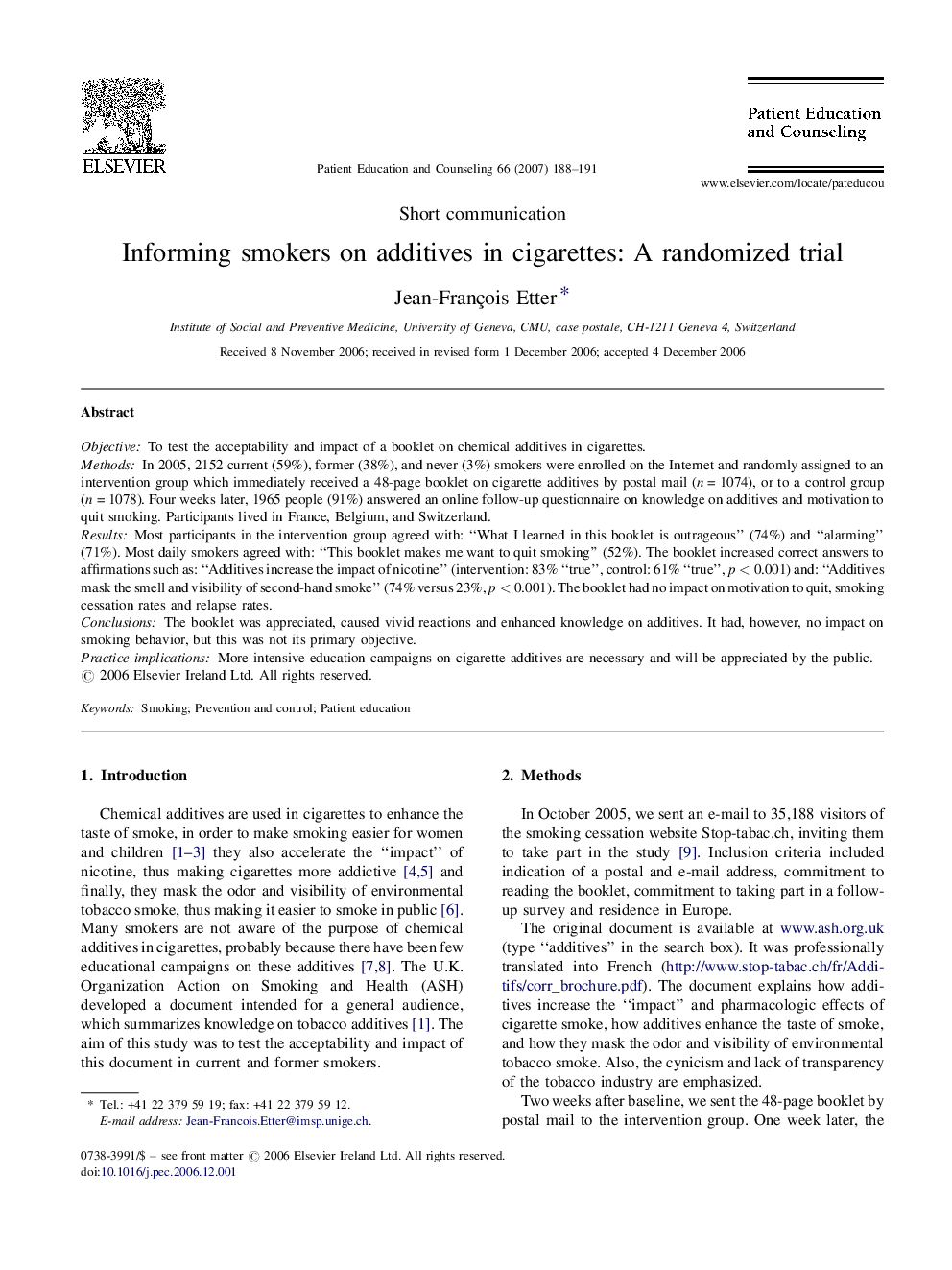| Article ID | Journal | Published Year | Pages | File Type |
|---|---|---|---|---|
| 3816063 | Patient Education and Counseling | 2007 | 4 Pages |
ObjectiveTo test the acceptability and impact of a booklet on chemical additives in cigarettes.MethodsIn 2005, 2152 current (59%), former (38%), and never (3%) smokers were enrolled on the Internet and randomly assigned to an intervention group which immediately received a 48-page booklet on cigarette additives by postal mail (n = 1074), or to a control group (n = 1078). Four weeks later, 1965 people (91%) answered an online follow-up questionnaire on knowledge on additives and motivation to quit smoking. Participants lived in France, Belgium, and Switzerland.ResultsMost participants in the intervention group agreed with: “What I learned in this booklet is outrageous” (74%) and “alarming” (71%). Most daily smokers agreed with: “This booklet makes me want to quit smoking” (52%). The booklet increased correct answers to affirmations such as: “Additives increase the impact of nicotine” (intervention: 83% “true”, control: 61% “true”, p < 0.001) and: “Additives mask the smell and visibility of second-hand smoke” (74% versus 23%, p < 0.001). The booklet had no impact on motivation to quit, smoking cessation rates and relapse rates.ConclusionsThe booklet was appreciated, caused vivid reactions and enhanced knowledge on additives. It had, however, no impact on smoking behavior, but this was not its primary objective.Practice implicationsMore intensive education campaigns on cigarette additives are necessary and will be appreciated by the public.
